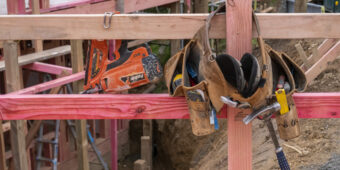MBIE aims to inform homeowners
10 Jul 2017, Featured, Industry News, LBP & Regulation, Prove Your Know How

As a builder, it’s in your best interest to ensure your clients know their rights and obligations
When it comes to building or renovating a house, it is important homeowners understand the consumer protection measures that are in place. Contractors can help champion change across the building and construction industry by encouraging homeowners to make informed decisions about building work.
To help homeowners get a better idea of the building process, as well as their rights and obligations, the Ministry of Business, Innovation and Employment (MBIE) is running an information and education programme on consumer protection measures relating to building work.
The measures relate to residential building work only and are included in Part4A of the Building Act 2004. They protect not just the homeowner and their investment, but the people doing the work.
“With increased activity, it’s really important that people have a good understanding of the rules around residential building work so they build it right,” says Chris Kane, Manager of MBIE’s Sector Trends and Innovation team.
The programme aims to inform homeowners about their rights and legal obligations and where to find up-to-date information when building, renovating or making home modifications.
“We want to encourage homeowners to adopt good practices from the outset, because this will help the building project run smoother,” says Chris. “The responsibility for building it right doesn’t just sit with the contractor. Homeowners need to have a better understanding of the building process before work starts to avoid unwelcome surprises that could create issues further down the track.”
The programme encourages homeowners to get familiar with the building process, have a written contract, and ask their contractor for a disclosure statement and checklist before signing.
Under the consumer protection measures, homeowners and contractors must have a written contract for building work that will cost $30,000 or more (incl GST). MBIE encourages contractors to provide a written contract for lower valued work too, so that everyone has an understanding of obligations, requirements and expectations.
If the building work is likely to cost $30,000 or more or, the contractor must provide information about their skills, qualifications, licensing status and the insurance or guarantees they provide. This is called a disclosure statement.
It’s good practice for builders to encourage homeowners to check all information carefully, to ensure they are confident in the building contractor’s ability to carry out the project. This pre-qualification can put the homeowner more at ease, which may make interaction throughout the build more pleasant.
The law also requires them to give clients a checklist, which outlines the stages of the build and the steps homeowners can take to protect themselves. If the building work is likely to cost less than $30,000, the contractor must provide a disclosure statement and checklist only if the client requests it.
MBIE has prepared a checklist covering the content required by law. It includes information on how building projects are managed, hiring contractors, what should be covered in a written contract and resolving disputes. To find out more about the checklist and disclosure statement, go to www.building.govt.nz/contracts
When the work is completed, homeowners have an automatic 12-month repair period during which contractors have to fix any defects they’ve been told about in writing. During this time period, if the builder doesn’t agree that a defect exists, the onus is on the builder to prove that is the case.
Homeowners can also take action for up to ten years if warranties in the Building Act have not been met – even if they’re not in the contract (these are called implied warranties). MBIE recommends homeowners address issues as soon as they become known. During this time period, if the builder doesn’t agree that a defect exists, the onus is on the homeowner to prove it does.
“The consumer protection measures are part of a wider programme of work to strengthen our building and construction industry,” says Chris. “They encourage a professional, no-surprises relationship between the homeowner and the contractor to ensure the best possible outcome – safer, healthier, more durable buildings for everyone.”
MBIE provides booklets for homeowners and contractors that outline the different responsibilities. Know your rights – a homeowner’s guide to the consumer protection measures, and Do your homework – a contractor’s guide can be downloaded from the website. You can also order free copies by emailing info@building.govt.nz
MBIE has also created some videos that describe the process. Check it out here.
Register to earn LBP Points Sign in
2 Comments
Leave a Reply
You must be logged in to post a comment.




UNDER CONSTRUCTION
JULY 2017
As a builder, it’s in your best interest to ensure your clients know their rights and obligations
done